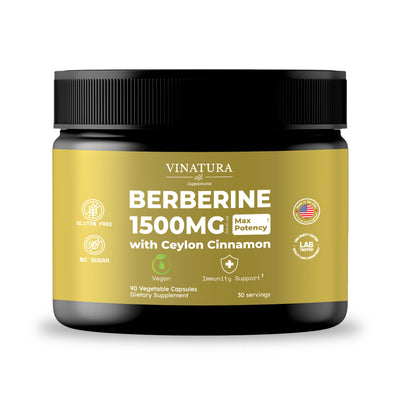
Does Serrapeptase Help With Weight Loss?
Many people have chosen supplements to achieve quick results among the current weight loss methods.
Serratiopeptidase is a chemical derived from the silkworm and widely usedworldwide.
However, whether Serrapeptase helps with weight loss remains a question that needs further investigation.
Before exploring further, please read the disclaimer located at the end of this webpage.
Key Takeaways
- No study acknowledges the effectiveness of Serrapeptase in weight loss.
- Serrapeptase may indirectly support weight management through its anti-inflammatory mechanism and digestive improvement.
- Other enzymes, including lipase, amylase, nattokinase, and protease, can be supplemented to aid weight loss through dietary intake of dietary supplements.
Does Serrapeptase Help With Weight Loss?

One of the benefits of Serrapeptase that has been noted is its potential to aid in weight loss. It is believed that serrapeptase may help reduce inflammation in the body, which is often associated with obesity, thus making the weight loss process easier.
However, there are still limited studies exploring this aspect of weight loss.
Therefore, while it can be said that Serrapeptase may aid in weight loss by reducing inflammation, more substantial evidence is needed to support this viewpoint.
What Is Serrapeptase And Its Benefits?
Serrapeptase is an enzyme produced by bacteria. It is a proteolytic enzyme that breaks down and digests proteins [1].
Serrapeptase has been used for many years in various countries worldwide, particularly popular in Japan and Europe as a medication used to improve symptoms associated with inflammation.
The benefits of Serrapeptase can be summarized as follows: anti-inflammatory properties, reducing swelling and pain, combating arterial plaque due to its blood-thinning and casein-dissolving properties, supporting chronic respiratory conditions [2].
Additionally, women may use this medication to reduce non-cancerous breast swelling and alleviate pain while breastfeeding [3].
These benefits have made serrapeptase widely used and prescribed globally, and it is utilized in various medical specialties.
How Does Serrapeptase Benefit Weight Loss?
The main mechanisms by which Serrapeptase may impact weight loss include its ability to reduce inflammation and support digestion.
Reducing inflammation restores the body's responsiveness to insulin and aids in weight loss when combined with a calorie-restricted diet [4].
However, its effects are primarily directed toward inflammatory reactions due to infection or injury, not chronic obesity-related inflammation.
Furthermore, Serrapeptase may also support digestion [5], helping the body absorb nutrients from food more efficiently.
When the body receives sufficient nutrients, the feeling of fullness occurs sooner, reducing hunger pangs and aiding in controlling daily calorie intake.
Although proposed as a weight loss aid through its anti-inflammatory effects, no specific evidence shows that serrapeptase significantly influences the weight loss process.
You may be interested: Does Serrapeptase Help Unblock Fallopian Tubes?
How to Incorporate Serrapeptase Into Your Diet to Support Weight Loss

Suppose you intend to use Serrapeptase for weight loss. In that case, it's advisable to discuss it with a doctor or nutritionist before starting.
They can provide specific guidance on dosage and how to safely and effectively incorporate Serrapeptase into your daily diet.
Each person will have different Serrapeptase doses depending on their medical condition and health status.
Typically, those using Serrapeptase will take it after meals for about 2 hours [6], ensuring that the enzyme is absorbed well and works effectively during food digestion.
Taking Serrapeptase after meals also helps reduce the risk of gastric issues or upset stomach after use.
What to Consider When Using Serrapeptase for Weight Loss?

When using any type of dietary supplement, especially when related to weight loss, caution is always necessary because if used improperly or with counterfeit drugs, it can harm your body.
Therefore, you need to seek out reputable sources of Serrapeptase to ensure that your medication is high quality and safe.
Additionally, some individuals have experienced adverse reactions when using Serrapeptase, such as abdominal pain, diarrhea, nausea, and dizziness,... [6].
Serrapeptase may increase the risk of blood clotting. When used concurrently with blood-thinning medications such as warfarin or aspirin, it may cause excessive blood clotting. Therefore, avoid using it with blood-thinning medicines [6].
Other Enzymes for Weight Loss You Can Incorporate Into Your Diet
In addition to Serrapeptase, many other enzymes can support the weight loss process, including lipase, amylase, nattokinase, and protease [7]. These enzymes can help improve digestion and nutrient absorption, enhancing weight loss.
These enzymes can be supplemented through dietary supplements or a diet rich in enzymes such as fruits and fermented foods like yogurt, sauerkraut.
Conclusion
While some studies and individual reports suggest that Serrapeptase may have benefits in weight loss, more clinical research is needed to determine its specific effects. Ultimately, before using any products, especially for weight loss, always discuss with a doctor or nutritionist to ensure safety and effectiveness.
Related article:
- Can Serrapeptase Help With PCOS?
- Can Serrapeptase Dissolve Scar Tissue?
- 10 Best Serrapeptase Supplements For Circulation Health
References
- [1] Mete Mecikoglu, Baransel Saygi, Yildirim, Y., Evrim Karadag-Saygi, Saime Sezgin Ramadan, & Tanil Esemenli. (2006). The Effect of Proteolytic Enzyme Serratiopeptidase in the Treatment of Experimental Implant-Related Infection. Journal of Bone and Joint Surgery. American Volume/the Journal of Bone and Joint Surgery. American Volume, 88(6), 1208–1214. https://doi.org/10.2106/jbjs.e.00007
- [2] Bhagat, S., Agarwal, M., & Roy, V. (2013). Serratiopeptidase: A systematic review of the existing evidence. International Journal of Surgery, 11(3), 209–217. https://doi.org/10.1016/j.ijsu.2013.01.010
- [3] Lindeka Mangesi, & Zakarija-Grkovic, I. (2016). Treatments for breast engorgement during lactation. Cochrane Library. https://doi.org/10.1002/14651858.cd006946.pub3
- [4] HF, A. (2014). Serrapeptase and nattokinase intervention for relieving Alzheimer’s disease pathophysiology in rat model - NN Fadl, HH Ahmed, HF Booles, AH Sayed, 2013. Human & Experimental Toxicology. https://journals.sagepub.com/doi/full/10.1177/0960327112467040
- [5] By Robert Redfern With studies and literature extracts for health professionals. (n.d.). https://www.merlinalchemy.com/wp-content/uploads/2022/09/The-Miracle-Enzyme-Is-Serrapeptase.pdf
- [6] Bhagat, S., Agarwal, M., & Roy, V. (2013). Serratiopeptidase: A systematic review of the existing evidence. International Journal of Surgery, 11(3), 209–217. https://doi.org/10.1016/j.ijsu.2013.01.010
- [7] Whitcomb, D. C., & Lowe, M. E. (2007). Human Pancreatic Digestive Enzymes. Digestive Diseases and Sciences, 52(1), 1–17. https://doi.org/10.1007/s10620-006-9589-z
Author

Product Disclaimer
Including an ingredient or study does not evaluate, endorse, or recommend any Vinatura product or any third-party product. Some ingredients discussed may not be used in any Vinatura product.
The content of the articles has not been evaluated by the Food and Drug Administration (FDA) and is not intended to promote or endorse any specific product. Any products sold on this website are not intended to diagnose, treat, cure, or prevent any disease.
Opinions and Endorsements
Any claims, statements, or opinions expressed in the articles are those of the author(s) and do not necessarily reflect the views or opinions of the manufacturers of the dietary supplement products. The products sold on this website are separate from the content of the articles and are not directly endorsed or associated with the information presented here.
Liability Disclaimer
The author(s) of the articles, website, and manufacturers of the dietary supplement products do not assume any liability for any potential consequences arising from the use of the information provided in the articles. Ingredient effects, dosages, and safety vary by individual, formulation, and context; some ingredients interact with medications or may be unsuitable during pregnancy or lactation. It is recommended that individuals consult with a qualified healthcare professional before making any dietary or lifestyle changes, including the use of dietary supplements.
Product Usage
Please refer to the product labels and packaging for specific usage instructions and guidelines for the dietary supplement products sold on this website.
Customer Support
For any concerns or questions regarding the dietary supplement products, please contact our customer support team, who will be more than happy to assist you.





Leave a Comment
Be the first to comment.
What do you think?